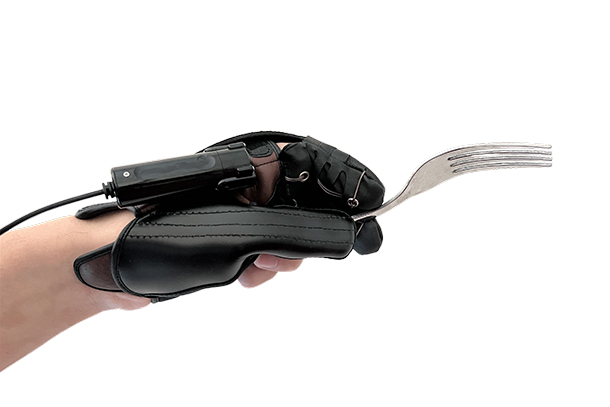
Xiaogang Hu, associate professor of mechanical engineering, will lead Penn State's contributions to a collaborative system focused on developing technology to assist stroke survivors, such as this exoskeleton device. Provided by Xiaogang Hu/Penn State.
Xiaogang Hu to lead Penn State assistive device efforts for stroke survivors at new center
December 7, 2022
Editor’s note: A version of this article originally appeared on the University of North Carolina Chapel Hill-North Carolina State University Joint Department of Biomedical Engineering website. Penn State, led by Associate Professor Xiaogang Hu, is a partner on the project.
Despite rehabilitation efforts to promote recovery through therapy, the average stroke patient can experience persistent impairment of sensory and motor functions — the leading cause of long-term disability in the United States, according to researchers leading the newly funded Rehabilitation Engineering Research Center (RERC) in Assisting Stroke Survivors with Engineering Technology (ASSET).
The center, led by North Carolina State University (NC State) and the University of North Carolina (UNC-Chapel Hill), was recently funded with a $4.8 million, five-year grant from the National Institute on Disability, Independent Living, and Rehabilitation Research. Derek Kamper, associate professor in the NCSU-UNC Joint Department of Biomedical Engineering, will direct the center, which aims to mitigate long-term effects through focused research and development on wearable assistive devices. These devices are different from standard stroke patient therapy in that they are designed to restore the function of movement in an assistive manner, which permits device users to regain control of the movement of their limbs outside of clinical settings.
Along with Georgia Tech, Medical University of South Carolina and Shirley Ryan Ability Lab, Penn State will serve as a partner in the collaboration. Xiaogang Hu, associate professor of mechanical engineering and Dorothy Foehr Huck and J. Lloyd Huck Chair in Neurorehabilitation, will lead Penn State’s efforts. The center seeks to improve technology and methods for integrating human-machine interactions into the daily lives of stroke survivors. Their mission is to use rehabilitation technologies to alleviate operational challenges and enhance physical abilities in individuals with disabilities.



